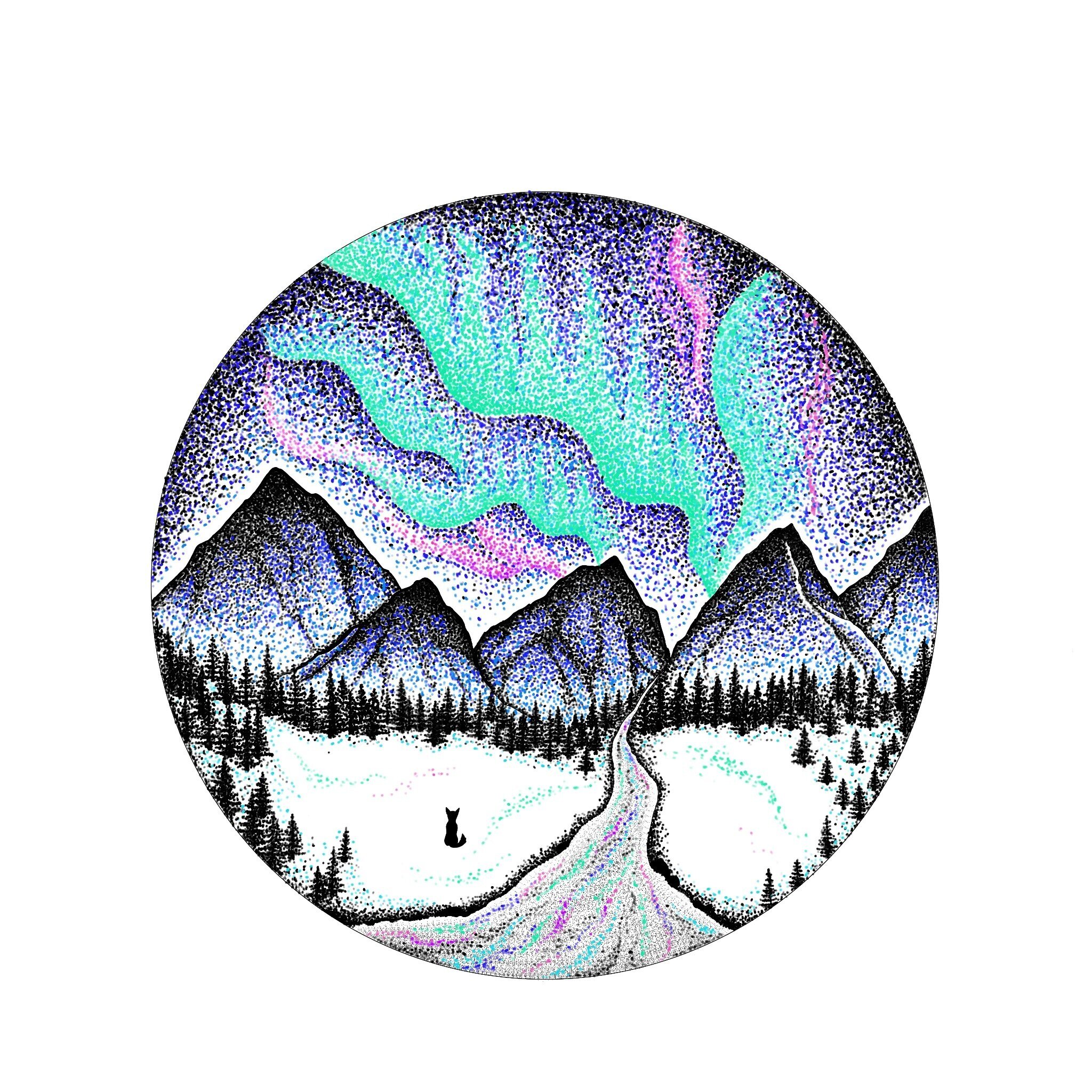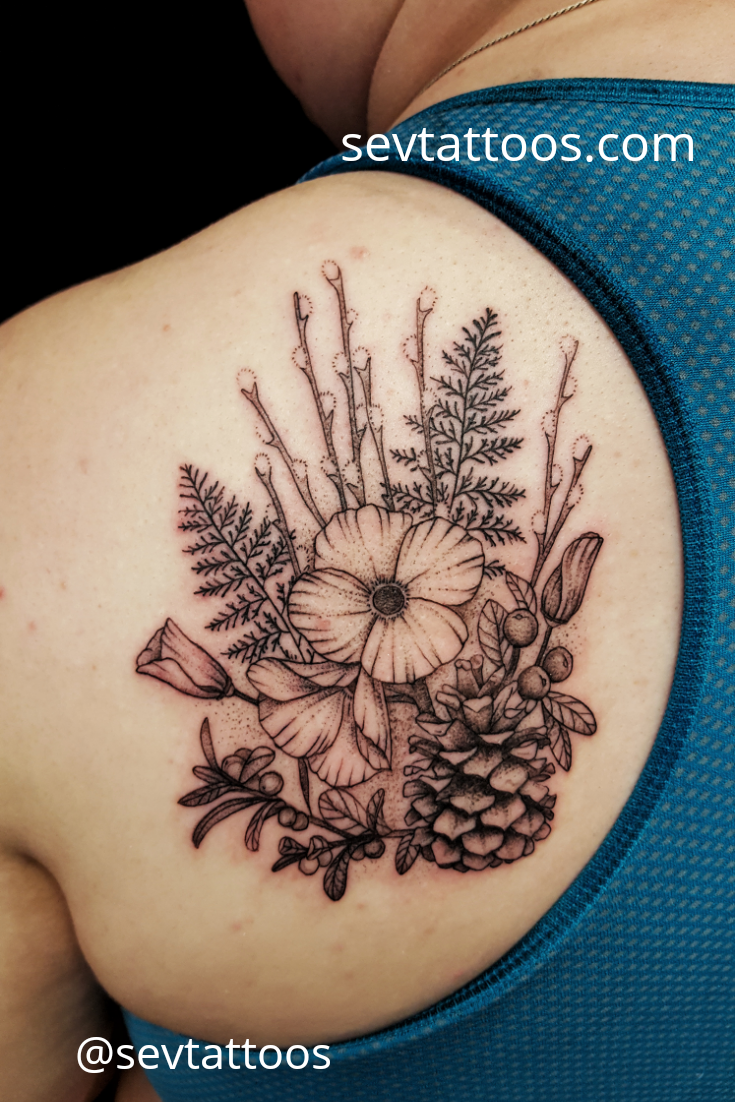Is Your Tattoo Vegan?

When people hear the word “vegan” they often think about food first, and maybe leather, wool, and cosmetics. If you’re reading this post, you probably already know that it’s a little more involved than that. Being more mindful of everything you buy and use is a key part of the lifestyle.
Being a “perfect vegan” isn’t possible—the aim is just to have the lowest negative impact that you can on the world around you (limiting the use of products that contribute to animal exploitation is the main goal, but I’m rolling the low-waste movement into this post as well). Resources like this one are here to help you do your best when choosing a tattoo shop or artist.
So, what is a vegan tattoo, and how can you get one?
For your tattoo to be vegan, it needs to be done with vegan tattoo ink, and the process should involve as many vegan-friendly alternatives to traditional materials as possible. In my opinion, this means going as far as making sure vegan ointments are used during the tattoo and as aftercare, and using as many recycled and/or bio-degradable plastics for the tattoo setup as possible.
Like pretty much every other area of veganism, research is your friend. Do a search for vegan tattoo artists near you (if you live in the Philadelphia area, I’d love to have you stop by the shop for a chat!). Tattooers will often tell you if they (or their tattoo setup at least) is vegan in their Instagram bios, or if you call their shops. If you find one, awesome, job done! They’ll be able to help you navigate the world of tattoo inks, wraps, and aftercare. If there’s not one close to you, it might be a little more complicated.
The best place to start is just to find a few tattoo artists whose work you love. Reach out to them, let them know you’re vegan or vegan-adjacent, and ask them about their tattooing supplies. Even if they’re not vegan themselves, they may already be aware of which products would be in alignment with your needs.
There are five basic stages of tattooing a client: the artist has to set up a station to work at, prepare your skin and apply the stencil, do the tattoo, clean up afterwards, and then you have to take care of it in the days/weeks following. So, how to we make this whole process as vegan-friendly as possible?
Let’s talk tattoo ink. The ingredients to watch out for are bone char, glycerin from animal sources, gelatin, shellac, and more. Black is the ink color most likely to be non-vegan. There are tons of reputable, widely used ink brands that are vegan, and to name just a few: Starbright, Dynamic, SkinCandy, Eternal Ink, Kuro Sumi, and Fusion (my ink of choice)…all of these are listed as vegan on the company’s website. It should be pretty simple to find out which brands your artist uses.
Another part of the tattoo process is putting a stencil on your skin for the artist to trace. Ask your artist if the brand of stencil paper they use is vegan (the Spirit brand has an option). They’ll clean and shave your skin first, before applying the stencil. Most artists use a kind of soap called “green soap”. Some brands of green soap are vegan, and some aren’t. According to my research, Costco brand is vegan. The PETA website suggests you bring your own razor, as the razors at the shop may have a gelatin strip on them. If you want to do this, ask your artist if they mind using that razor…I wouldn’t though. If a client brought me a razor, I’d still want to use one of my own. This is just to be sure that the razor I use on them (single-use) is not already contaminated in some way. The last thing you want is for bacteria to be spread over an area of your skin that’s about to be tattooed!
Many different plastic coverings are used to set up a tattoo station, in order to prevent cross-contamination. Your artist will likely have a little bag to cover each tattoo machine they plan to use, the water and soap bottles, the cords connecting the power supply and the tattoo machines, and the power supply itself, not to mention covers for various other areas like the tattoo bed and arm rest. Although veganism and low-waste living are not the same thing, they both deserve consideration.
Tattoo artists go through a lot of plastic coverings, paper towels, plastic cups, etc, each day. Having a lot of other single-use items is absolutely necessary to prevent cross-contamination and the spread of blood-borne pathogens. So, tattooing can’t ever be considered low-waste, but it just makes sense to ask your artist what materials they’re using to try to lessen the environmental impact. How far you want to go with this is up to you and your artist. All of this is a sliding scale…if you just want to make sure they’re using vegan inks, that’s great. If you want to be sure their whole process is as environmentally friendly as possible, excellent…it’s up to you, your artist, and what resources are accessible to you both.
For your aftercare needs, After Inked is a good product, as is Derm Shield by the brand Recovery (Derm Shield is a plastic wrap that stays on your skin for multiple days. It can be ordered online, but make sure you read the directions carefully). Hustle Butter is another vegan aftercare lotion I can recommend, as is coconut oil. Something natural, with few if any added fragrances and no beeswax, should work well for most people. I have a full blog entry about good aftercare practices if you’d like more info!
Common products used during or after the tattooing process that are NOT vegan are Vaseline, A&D Ointment, and Aquaphor. Products like this often do not actually contain animal products, but are likely tested on animals and/or are owned by parent companies that conduct animal testing.
Whatever you decide to do in terms of your tattoo, don’t be afraid to ask your artist any questions you have…razors, ink, stencil paper, together you can come up with a plan for your tattoo that works for you. Tattoo artists seem to have a reputation for being kind of rude or unapproachable (I think this stereotype is dying off a bit though. More competition in the industry = better customer service). Doesn’t matter though, don’t be afraid to ask your questions…if they’re a dick about it, do you really want to be giving them your business in the first place?
Reading over this article, I really feel like it raises more questions than it gives answers to. If this much has to be considered when getting a tattoo, what else do I routinely use in my daily life that has an ingredient or material sourced from animals? I could go crazy thinking about it all, but here’s where the definition of veganism should be reiterated. The Vegan Society's official definition is: "veganism is a way of living which seeks to exclude, as far as is possible and practicable, all forms of exploitation of, and cruelty to, animals for food, clothing or any other purpose." Sometimes it’s just not practicable to avoid all animal products in a situation like a tattoo shop, where you as the client don’t have total control of the sourcing and purchasing of materials. My advice, such that it is, is to ask questions and make the best judgement call that you can.
If you have any questions/comments, feel free to start a discussion below, or shoot me an email, I’d love it! In the meantime, here are some other resources on getting a vegan tattoo:
https://vegantattoostudios.com/vegan-ink/
https://www.killerinktattoo.co.uk/blog/the-only-way-is-vegan




